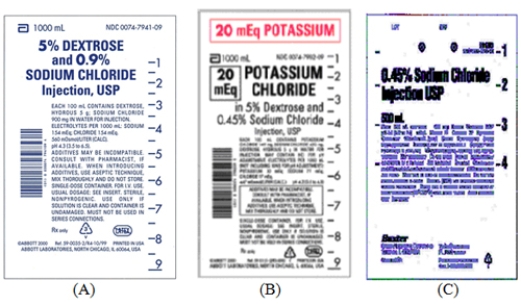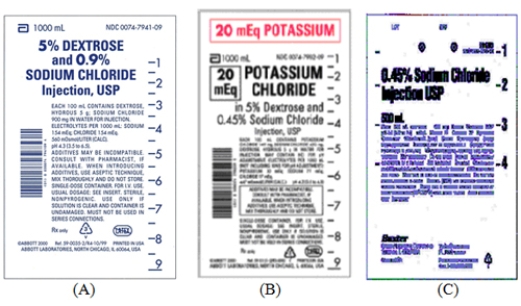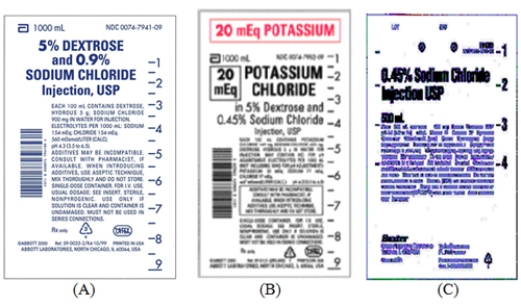Exam 21: Intravenous Solutions and Equipment
Exam 1: Roman Numerals11 Questions
Exam 2: Fractions42 Questions
Exam 3: Decimals35 Questions
Exam 4: Ratio and Proportion25 Questions
Exam 5: Percentages20 Questions
Exam 6: Metric System41 Questions
Exam 7: Apothecary and Household Systems31 Questions
Exam 8: Converting Within and Between Systems25 Questions
Exam 9: Additional Conversions Useful in the Health Care Setting40 Questions
Exam 10: Medication Administration18 Questions
Exam 11: Understanding and Interpreting Medication Orders25 Questions
Exam 12: Medication Administration Records and Medication Distribution Systems14 Questions
Exam 13: Reading Medication Labels25 Questions
Exam 14: Dosage Calculation Using the Ratio and Proportion Method15 Questions
Exam 15: Dosage Calculation Using the Formula Method13 Questions
Exam 16: Dosage Calculation Using the Dimensional Analysis Method12 Questions
Exam 17: Oral Medications35 Questions
Exam 18: Parenteral Medications30 Questions
Exam 19: Reconstitution of Solutions15 Questions
Exam 20: Insulin10 Questions
Exam 21: Intravenous Solutions and Equipment15 Questions
Exam 22: Intravenous Calculations37 Questions
Exam 23: Heparin Calculations17 Questions
Exam 24: Critical Care Calculations8 Questions
Exam 25: Pediatric and Adult Dosage Calculation Based on Weight31 Questions
Select questions type
Directions: Calculate the number of grams of NaCl and /or dextrose in the following solutions.
500 mL 1/2 NS sodium chloride (NaCl): _____
Free
(Short Answer)
4.8/5  (41)
(41)
Correct Answer:
2.25 g NaCl
Directions: Fill in the correct number or word(s)to answer the question.
In IV fluid abbreviations,D5NS identifies what IV fluid? _______________
Free
(Short Answer)
4.7/5  (38)
(38)
Correct Answer:
5% dextrose in normal saline
Directions: Fill in the correct number or word(s)to answer the question.
List the components and percentage strengths of the following IV solutions.
a.D
 S
b.D5NS 10 mEq KCl
c.D5RL
S
b.D5NS 10 mEq KCl
c.D5RL
Free
(Essay)
4.7/5  (34)
(34)
Correct Answer:
a.5% Dextrose in 0.225% saline
b.5% Dextrose in 0.9% saline with 10 mEq potassium chloride
c.5% Dextrose in lactated Ringer solution
Directions: Interpret the following IV orders.
1,000 mL (1 L)of L/R q8h
(Essay)
4.9/5  (45)
(45)
Directions: Fill in the correct number or word(s)to answer the question.
_______________ devices allow a client to self-administer pain medication.
(Essay)
4.8/5  (33)
(33)
Directions: Fill in the correct number or word(s)to answer the question.
The IV line that can be used to administer medications and solutions and can be connected to a port on the main infusion is called _______________.
(Short Answer)
4.8/5  (39)
(39)
Directions: Calculate the number of grams of NaCl and /or dextrose in the following solutions.
0.5 L D51/4NS ________ g dextrose ________ g NaCl
(Short Answer)
4.8/5  (33)
(33)
Directions: Calculate the number of grams of NaCl and /or dextrose in the following solutions.
250 mL D5NS _______ g dextrose ________ g NaCl
(Short Answer)
4.8/5  (38)
(38)
Directions: Interpret the following IV orders.
1,000 mL (1 L)D5W to infuse at a rate of 100 mL per hour
(Essay)
4.7/5  (34)
(34)
Directions: Fill in the correct number or word(s)to answer the question.
The name for the main infusion administration set is _______________.
(Short Answer)
4.9/5  (36)
(36)
Directions: Fill in the correct number or word(s)to answer the question.
An IV pump is an example of an ___________ infusion device.
(Short Answer)
4.9/5  (39)
(39)
Directions: Calculate the number of grams of NaCl and /or dextrose in the following solutions.
5 L D10W dextrose: _______________
(Short Answer)
4.9/5  (40)
(40)
Directions: Identify the letter of the label corresponding to the IV fluid abbreviation. D  NS with 20 mEq KCL
NS with 20 mEq KCL 
(Short Answer)
4.8/5  (36)
(36)
Directions: Identify the letter of the label corresponding to the IV fluid abbreviation.  NS
NS 
(Short Answer)
4.8/5  (35)
(35)
Directions: Identify the letter of the label corresponding to the IV fluid abbreviation. D5NS 
(Short Answer)
4.7/5  (33)
(33)
Filters
- Essay(0)
- Multiple Choice(0)
- Short Answer(0)
- True False(0)
- Matching(0)